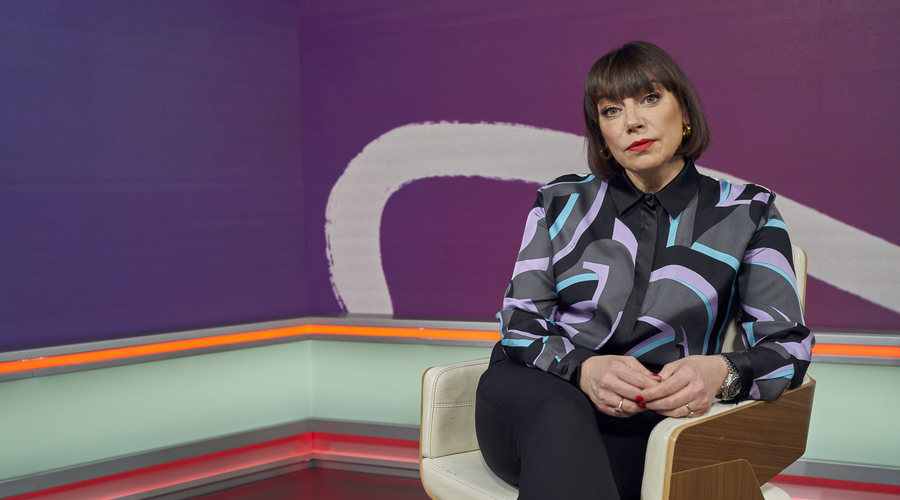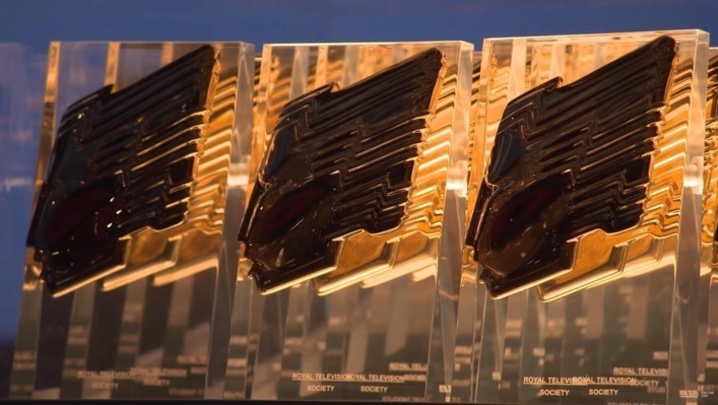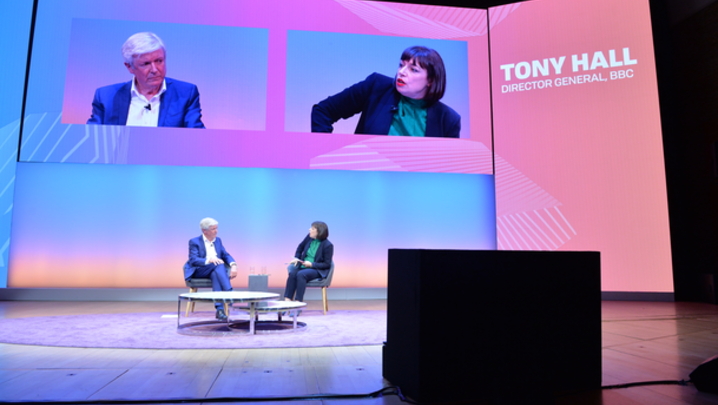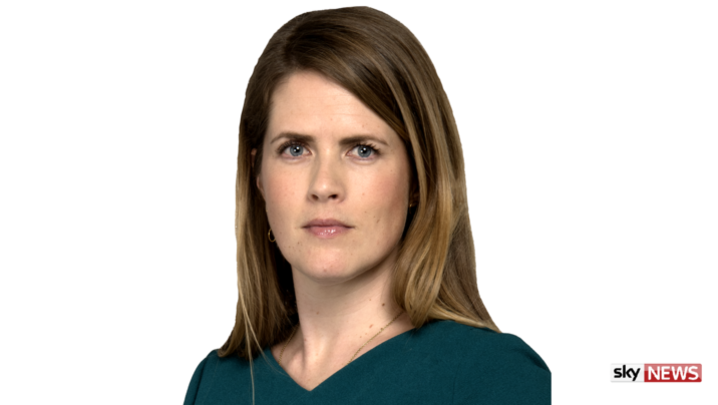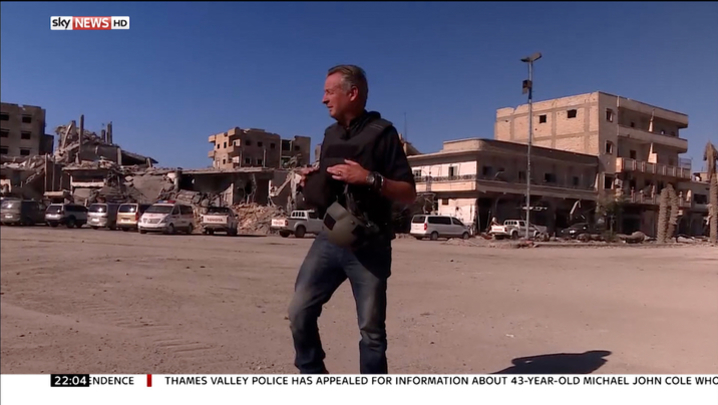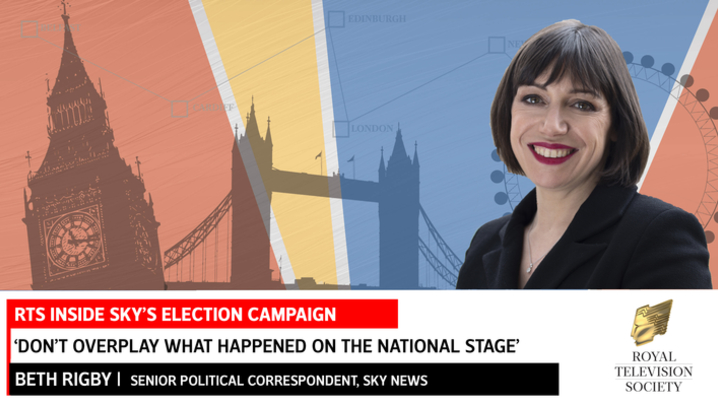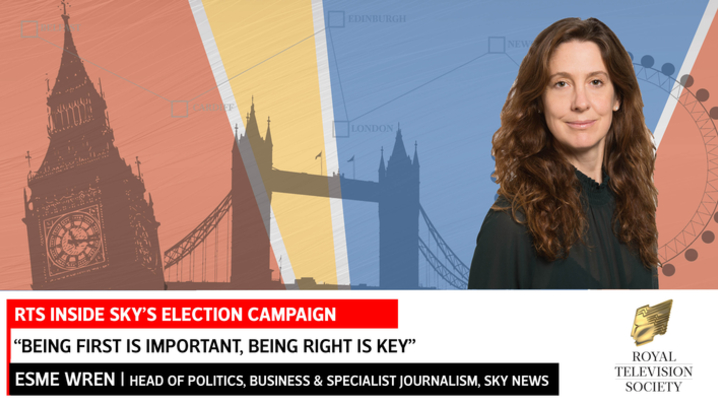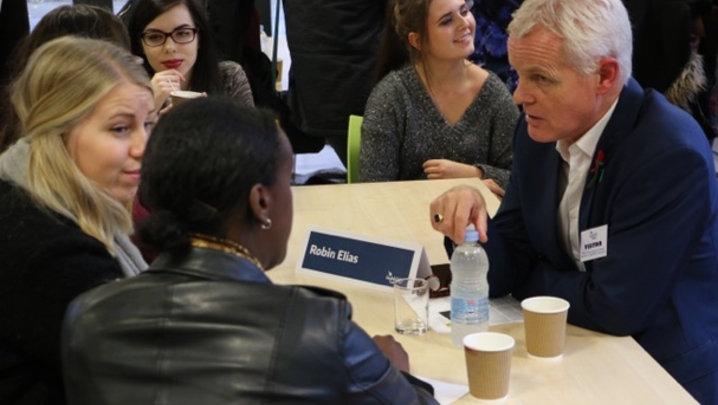Beth Rigby is talking crises. “Rolling crises,” to be specific.
Starting with the 2014 Scottish independence referendum and tunnelling through to the government implosion of 2022, we’re on a whistle-stop tour of all the political drama she has covered as a lobby journalist over the past 13 years. It’s quite a sight. It takes serious patience to keep up with the volatile world of British politics, but Rigby has been laser focused on the beat since 2010. And she’s earning recognition, nominated for two RTS Television Journalism awards this year (Political Journalist of the Year and Network Interview of the Year) for her work documenting the trenches of Westminster.
We first dive into that interview with Boris Johnson, the agonising yet captivating grilling of a Prime Minister recently accused of breaking lockdown law for attending parties during the pandemic. When Rigby had finished the interview, she was initially annoyed, complaining to her cameraman Sam Williams that Johnson hadn’t answered the questions she had been ferociously pushing. “Beth, he nearly cried,” responded Williams. It was only after watching the footage back that she could process the significance of the conversation. Rigby tore Johnson to shreds, forcing the Prime Minister to apologise to the public ten times as his Partygate narrative fell apart at the seams.
“Television is not necessarily getting a news line but creating a moment,” she explains. “People not answering questions can be as powerful on television as it can be when they do.”
What really stood out in this interview was the powerful emotive language Rigby had used to grind Johnson down: “You know how ridiculous that sounds don’t you?”. She left him speechless, looking at the floor, shuffling his feet like a schoolboy on the verge of expulsion. I ask if she had prepped that other guillotine-dropping line: “you are just taking the mickey out of the British people”. She says no – she had only been told she was doing the interview at 10pm the night before, and the prep had happened hastily in a Costa coffee shop 30 minutes before she stepped into the arena.
“In Westminster, the language can be quite alienating to the public,” she says of her direct, demotic approach. “I try to cut through that and ask questions that are relatable or resonate with the people watching.”
Rigby worked in print for 17 years before making the jump to TV. Starting at the Financial Times as a graduate trainee, she rose through the ranks to chief political correspondent via the business and finance desks. After a brief stint at The Times, she took up a job as political correspondent at Sky, her first full time gig in broadcast, before becoming political editor in 2019. Her chat show, Beth Rigby Interviews, is now in its second series.
Rigby discusses the way her storytelling style has changed through this transition: “Television is about having loads of information and distilling it into bite-sized chunks that don't dumb it down,” she tells me. “You have to filter the information in a way that brings clarity, not confusion.”
“I operate in a world where everyone is a political expert, everyone loves the nuance and the incremental change in a story. But I’m broadcasting to people that might only be thinking about politics for five minutes a day! I act as a conduit between the two.”

TV packaging didn’t come naturally at first. Rigby laments her early scripts, which were “long”, “clunky”, and not translatable to the box. Then there was the confidence element of working on screen, or amongst peers, no longer safely confined to interviewing in one-on-one scenarios. “I used to go to press conferences on my own when I was a business journalist,” she recalls.
“I would watch Nick Robinson stand up in this room of 500 people at the CBI conference and ask really clever questions and think: 'God, he's really brave. I'd never have the guts to do that.”
It’s hard to imagine Beth Rigby thinking she doesn’t have the guts. She’s become renowned for her doggedness, authoritative style and ability to break down deflective interviewees. I ask her if she finds it tiresome having to repeat her questions to politicians, the never-ending poking, pressing and punching for a straight answer. She responds by first outlining the currency of politicians: ambivalence. “Politicians like ambivalence, that's kind of what they trade in,” she explains. She goes on to reference Matt Hancock on I’m a Celebrity… Get Me Out of Here! revealing the ‘pivot’ tactics of politicians (“You have to give enough link to the question that it doesn’t look like you’re avoiding the question… whilst pivoting,” Hancock said from the jungle).
“My job is always to guide the politician back to the theme and keep pressing, for clarity,” she affirms. “I don't find it tiresome. I sometimes don't succeed. But in a way, it's quite simple. If you know what you're trying to do, you just stick to your guns.”
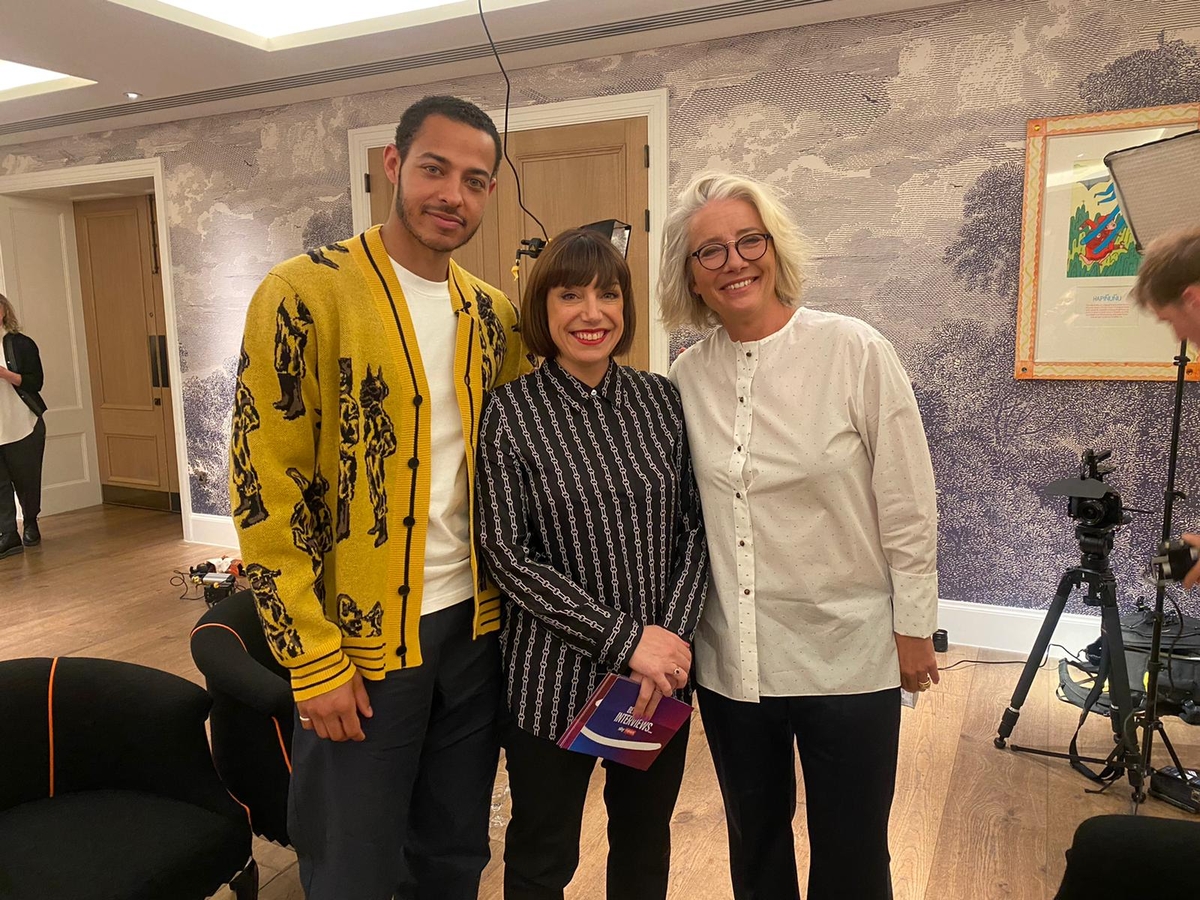
It was a year of political train wrecks – Rigby references the Collins Dictionary’s choice for word of the year, ‘permacrisis’ – which left her to rummage through the rubble. “It was like being assailed through this whirlwind of political news,” she explains. “To have three prime ministers through the door in number 10, in seven weeks… Just. Bonkers.”
The revolving door of politicians, a cataclysmic mini-budget and a devastating cost of living crisis took politics to unprecedented levels of farcicality last year. Was it at least an exciting time to be covering Westminster? “Of course, it's exciting in that it is adrenaline fuelled political turmoil,” she says, before pausing. “But politics isn't just a story or drama. It's something that genuinely affects people's lives. When you see a government imploding, and you think about the implications for the country, what you actually feel is a great sense of responsibility to tell that story accurately and well.”
Rigby lives and breathes politics, but retains perspective on the theatrics. As she goes on dissecting the past year, she uncovers a fascinating element of her job description – making the right editorial decisions. “You have to be talking to your contacts and taking the temperature, you have to make a judgement at some point to say: ‘Boris Johnson will not survive this’. And that's difficult because it's very febrile,” she explains.
“People are telling you things, but are they being disingenuous or are they being honest? If you don't get it right, then you lose your credibility, and then you lose your impact as political editor.” The pressure cooker of political journalism shares flavours with politics itself in that regard. Not only being ready to go 24/7, zooming around the country chasing public figures and events, keeping your sources (and audience) sweet, but making decisions which can guide the political discourse in the wider media. It’s not a job for the faint hearted.
Discussing the lack of diversity in political journalism, Rigby reminds me that she’s “not a creature of this world”. She wasn’t rubbing shoulders with the political and media classes at private schools in her youth, and she doesn’t have the Received Pronunciation typical of broadcasters. Rigby has carved out a distinctive voice capable of speaking truth to power. When a crisis rolls around, you know she’s going to come out swinging.

